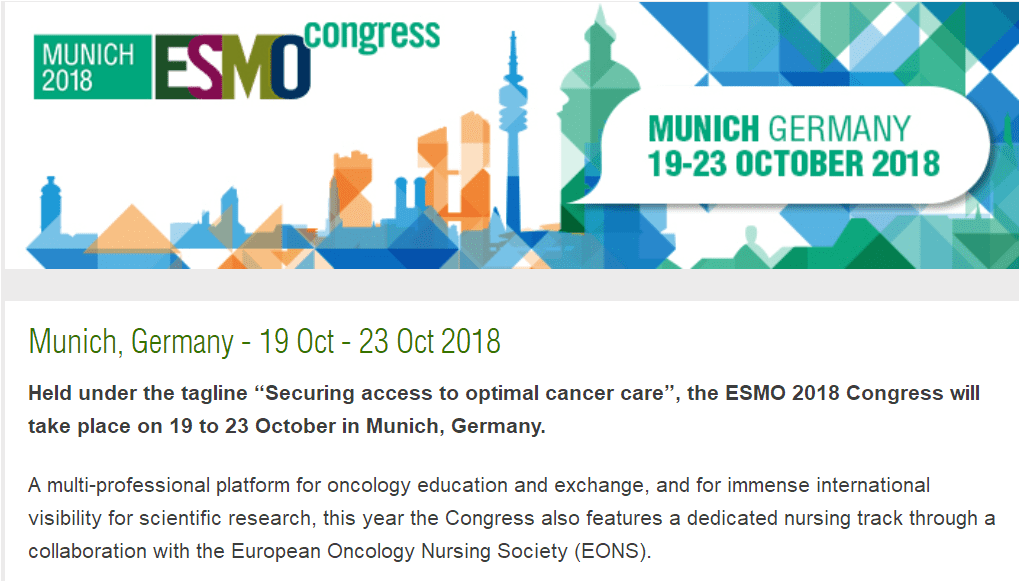Biocytogen at the at the European Society for Medical Oncology (ESMO) 2018 annual meeting
Biocytogen is excited to exhibit at the European Society for Medical Oncology (ESMO) 2018 annual meeting, which will take place in Munich, Germany from between 19-23 October 2018! With this year’s theme “Securing access to optimal cancer care” and sessions focusing on immunotherapy, precision medicine, big data in cancer management, this meeting will attract clinicians, researchers, patient advocates, journalists and the pharmaceutical industry from all over the world to learn about the latest advances in oncology and translate such progress into better cancer patient care.
We are glad to have the opportunity to share our expertise with conference attendees on:
- generating customized gene-targeted animal models and cell lines
- providing immune checkpoint humanized mouse models for antibody drug efficacy studies
- constructing human immune system reconstituted B-NDG mouse model for I/O studies
- performing pharmacological studies based on our unique mouse models
We are looking forward to meeting you at our booth (#208, Hall B2)!
Meanwhile, we are very proud that a poster presentation from Biocytogen has been selected and will be presented at this event:
Humanized knock-in mouse models for evaluating in vivo efficacy of immune-oncology drugs targeting stimulatory immune checkpoint molecules (#4792)
Abstract Recently, increasing attention has been paid to the development of immuno-oncology (IO) drugs, due to the promising clinical results acquired by CTLA-4, PD-1 and PD-L1 antibodies. However, along the IO drug development process, in vivo efficacy models have always been a rate-limiting step. Mouse surrogate antibodies were often used in immune-competent mice with murine syngeneic tumor models to evaluate in vivo efficacy of the IO drugs. However, the efficacy of a surrogate antibody cannot fully represent the human drug in the clinical scenario. In most cases, a human monoclonal antibody does not have mouse cross-reactivity. Therefore, we generated humanized knock-in mouse to evaluate the in vivo efficacy of human IO antibodies. For example, human PD-1 knock-in (B-hPD-1) mice were generated with a chimeric PD-1 receptor, which is recognizable by human PD-1 antibodies, and can be used to test human PD-1 antibody in vivo efficacy. Mouse cancer cell lines including colon cancr MC38, melanoma B16F10 and lung cancer LLC1 were genetically modified with over-expression of hPD-L1 and knock-out of mPD-L1, and used to evaluate the in vivo efficacy of human PD-L1 antibodies. Additionally, more knock-in mice targeting inhibitory immune checkpoint molecules were developed, such as B-hPD-L1, B-hCTLA-4, B-hLAG3, B-hTIM3, B-hTIGIT, B-hBTLA, B-hSIRPa et al,. Humanized knock-in mice, pairing with genetically modified mouse cancer cells, represent a promising in vivo efficacy model for the development of IO drugs, and contribute to the clinical translation of animal studies.
Event Date: October 19th - October 23rd, 2018 | Event Location: Munich, Germany



